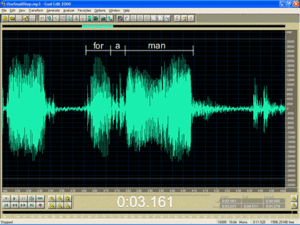BiometricsVoice biometrics: the next generation lie detectors
Several research teams across the country are hard at work developing computer programs that can analyze an individual’s speech to determine whether they are lying, angry, or drunk; these programs will likely never be admissible in court, as even polygraph tests are dubious as evidence, but could very well be used by businesses

Algorithms are being developed to use voice biometrics as lie detectors // Source: freedomsphoenix.com
Several research teams across the country are hard at work developing computer programs that can analyze an individual’s speech to determine whether they are lying, angry, or drunk.
For instance, Dr. Julia Hirschberg, a professor of computer science at Columbia University, is creating a computer program that can deconstruct an individual’s speech pattern to see if they are being honest by searching for cues like volume, changes in pitch, pauses between words, and other verbal signs.
So far Hirschberg and her team have been able to determine if a person has been lying with 70 percent accuracy in tests. In a series of interviews, individuals were asked to either tell the truth or lie about a topic and then press a pedal indicating whether it was a lie. The recordings were then analyzed for vocal features to determine their veracity.
Thanks to a nearly $1.5 million grant from the Air Force, Hirschberg is now working on algorithms to analyze English speakers as well as those who speak Arabic and Mandarin.
Other notable speech analysis research includes Shrikanth Narayanan, an engineering professor at the University of Southern California, who is developing a program to analyze an individual’s emotions by using mathematical algorithms that scan hundreds of vocal cues like pitch, timing, and intensity.
According to Narayanan, anger is relatively easy to spot. For instance, in marital counseling arguments, the word “you” is more common than “I” when spouses blame each other for problems. In contrast, other emotions are more difficult to determine.
“We are constantly trying to calculate pitch very accurately” to capture minute variations, he said.
Narayanan is also at work on a program to determine if an individual is drunk, but so far he has not been able to develop detect humor.
These programs will likely never be admissible in court, as even polygraph tests are dubious as evidence, but could very well be used by businesses to determine whether a customer who calls in is angry or whether a company official is deceitful at a press conference.
